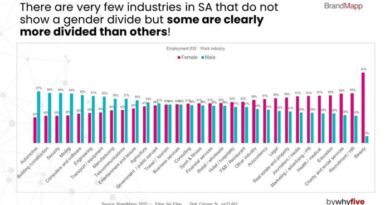Like economy, housing market recovery dependent on confidence, investment rebound
Indicating the severity of the current economic contraction experienced as a result of the Covid-19 lockdown, finance minister Tito Mboweni is expected to deliver an Emergency Budget on 24 June – just four months after the National Budget speech in February. To put this in some perspective, no such measure was required during the severe recession triggered by the 2008 global financial crisis.
Dr Andrew Golding, chief executive of the Pam Golding Property group |
The minister’s address is awaited with anticipation, as this will provide the first official indications of the impact that the close to three-month lockdown has had on the economy.
It’s certainly not going to be an easy or swift path to revive the economy, as authorities are forced to balance measures required to contain the virus with the need to implement stimulus measures to set the country on a path to economic recovery. Ultimately, it is acknowledged that beyond the current stimulus measures, major economic reforms will be required to revive economic growth – in order to meet the additional expenditure associated with the pandemic without increasing the tax burden on already indebted and income-challenged consumers.
Fiscal, monetary policy measures
To date, government has been trying to sustain economic growth through the use of two sets of policy measures, firstly fiscal – namely via grants, tax relief schemes and a variety of incentives, and secondly monetary – through bond buy-backs and interest rate relief. However, these measures are unlikely to have a major impact on economic activity until the lockdown is lifted and the entire economy can begin to recover once more.
So much has changed since the National Budget was announced in February, and it remains to be seen how the Emergency Budget will address the needs of the stimulus package. While the full extent of the economic downturn may depend on whether we experience a second wave of the pandemic, National Treasury currently estimates that the economy will contract by between 5% and 10%, resulting in an estimated revenue loss for the year of as much as R285bn.
While government’s rescue plan will help to offset the fall in household consumption to some extent, investment spending in South Africa in general has been declining in recent years. Consequently, we believe it is of crucial importance for South Africa to create an investor-friendly environment which inspires confidence among potential investors, including the local business sector.
Infrastructure investment prioritised
Government has prioritised infrastructure investment in the post-Covid economic recovery plan, which is encouraging as this will bolster the overall economy – with broad spin-offs for industry, communities and, ultimately, the property market.
The Organisation for Economic Co-operation and Development (OECD) says measures targeting vulnerable households should continue, if necessary, after the initial six months, particularly if there is a further virus outbreak, and similarly, the sectors hardest hit, such as tourism and restaurants, should continue to receive support until their activity recovers.
Financing this rescue plan can be afforded by partnering with international financial institutions and borrowing in the domestic financial market, while the Reserve Bank supports liquidity in the debt market. However, the key remains structural reform, which is needed to unlock the potential of the economy, and tackling the challenges of key state-owned enterprises – particularly Eskom. Such reforms are urgently needed to create conditions for the return of investment and growth and to restore fiscal credibility.
Additional home-buyer concessions unlikely
Given the severe under-recovery of tax revenue anticipated this year, there are unlikely to be any additional concessions for home buyers in the Emergency Budget, particularly as the threshold for zero transfer duty was raised to R1m in February. Furthermore, homeowners are also benefiting from the fact that interest rates have been reduced to a more than 40-year low – with scope for further rate cuts during the remainder of the year, followed by the potential of an extended period of rates remaining at low levels. That said, the announced stimulus measures include tax relief of some R70bn, although this is likely to be focused more on the employer than the employee, in an attempt to save jobs and keep companies financially viable.
Positively, market feedback indicates that the banks are adopting a different approach to homeowners from that during the Global Financial Crisis which saw a high level of home repossessions. During the current pandemic, it appears that financial institutions are more willing to work with financially distressed homeowners to either keep their homes via payment holidays or to help them sell their properties on the market. Most financial institutions have put together alternative repayment solutions to help consumers keep up with the debt repayments without tarnishing their credit scores.
Contribution of residential sector
Thankfully, observing strict protocols, the real estate industry is now fully operational again (from 1 June), as this sector makes a meaningful contribution to the country’s economic activity, taxes and employment, while home ownership is an aspirational imperative for many, providing security of tenure and a nest egg for the future.
Apart from this, estate agents are largely dependent on commission-based income for their survival, while a host of other related sectors, including financial institutions, mortgage originators, conveyancers, construction and engineering, among others, directly and indirectly derive income and employment.
While the residential property market is expected to take some time to recover, for various reasons including buyer affordability, enquiries since the start of the month (June) have been brisk, while negotiations are under way to finalise transactions which commenced either before or during lockdown.
Source: bizcommunity.com


